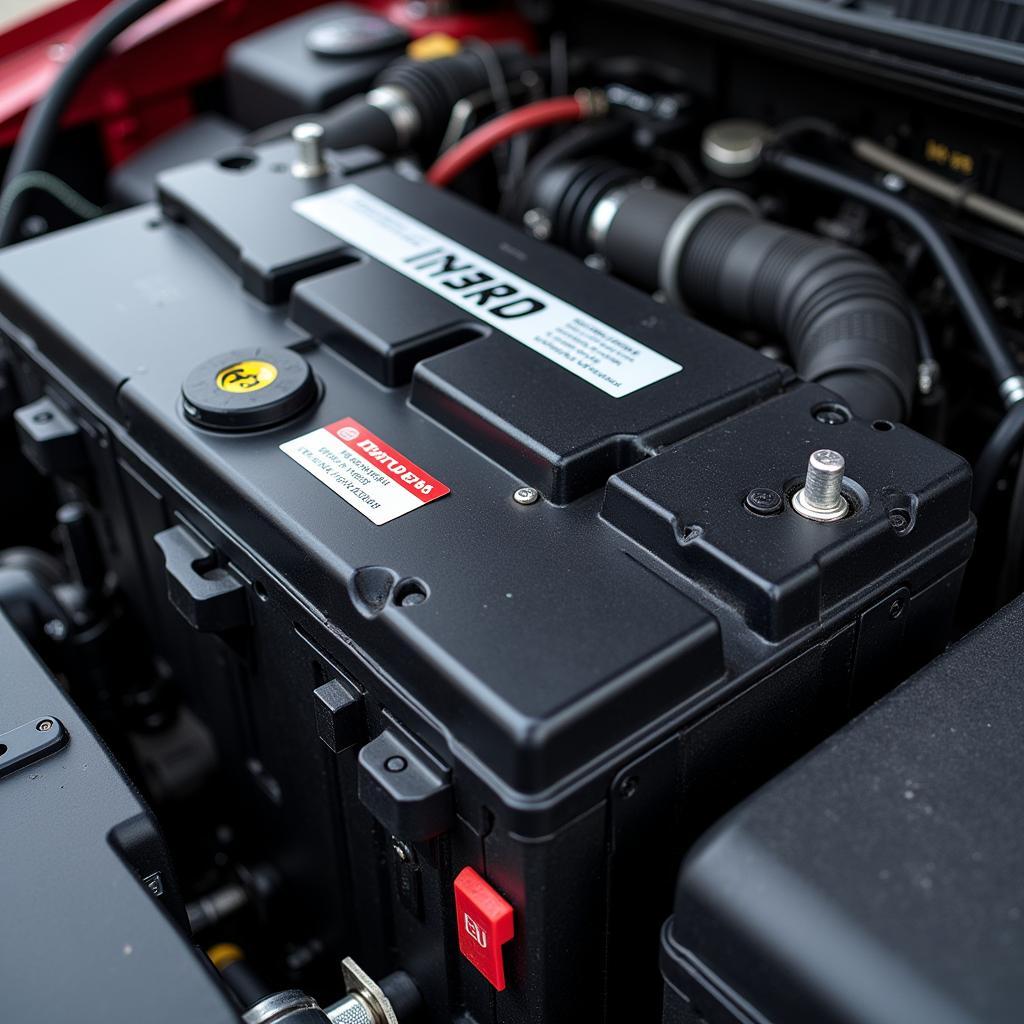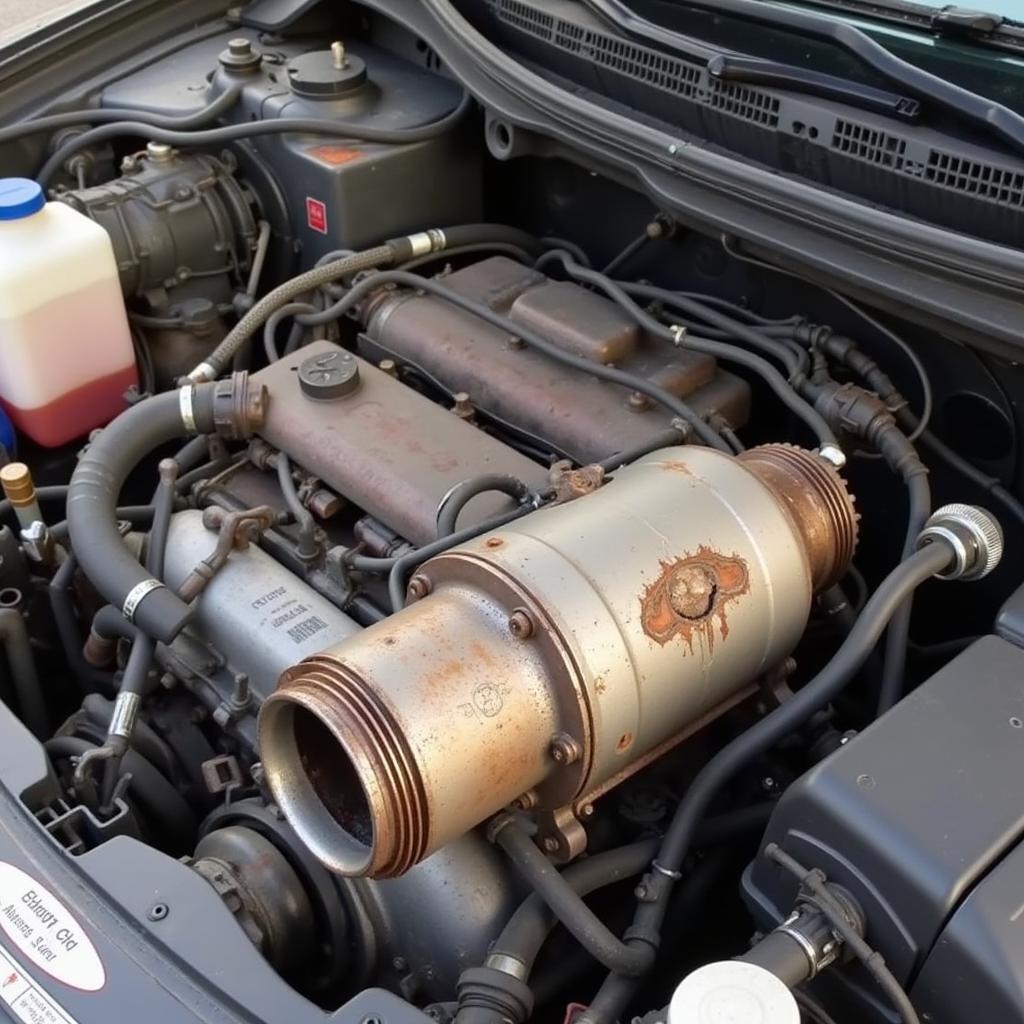Honda hybrid cars are known for their fuel efficiency and reliability. However, like any vehicle, they can experience issues over time. This guide will delve into common Honda hybrid car problems, offering insights into symptoms, causes, and potential solutions. Whether you’re a Honda owner, a mechanic, or simply an enthusiast, understanding these issues can help you keep your hybrid running smoothly.
One common issue you might encounter relates to the hybrid battery. For more information on troubleshooting hybrid car battery problems, you can check out our article on problems with honda hybrid cars.
Common Honda Hybrid Car Problems and Troubleshooting Tips
Here’s a breakdown of some frequently reported problems with Honda hybrid models:
1. Battery Issues
The hybrid battery is the heart of your Honda hybrid system. While Honda batteries are generally durable, they can degrade over time, leading to reduced performance and fuel economy.
Symptoms:
- Decreased fuel efficiency
- Engine running more frequently
- Reduced power, particularly during acceleration
- Warning lights on the dashboard (e.g., IMA light)
Causes:
- Age and normal wear and tear
- Extreme temperatures
- Driving habits (frequent short trips can strain the battery)
Troubleshooting:
- Check the battery’s health: Many Honda dealerships offer battery health checks.
- Replace the battery: If the battery is nearing the end of its life, replacement is often the best solution.
- Modify driving habits: Minimize short trips and avoid extreme temperatures when possible.
 Honda Hybrid Battery
Honda Hybrid Battery
2. Integrated Motor Assist (IMA) System Problems
The IMA system assists the gasoline engine, providing additional power and improving fuel efficiency. Problems with this system can impact performance and fuel economy.
Symptoms:
- Reduced power and acceleration
- Jerky or hesitant acceleration
- IMA system warning light illuminated
Causes:
- Faulty IMA motor
- Issues with the IMA control module
- Problems with the IMA battery
Troubleshooting:
- Scan for diagnostic trouble codes (DTCs): This can pinpoint the source of the problem within the IMA system.
- Inspect the IMA motor and components: Look for signs of wear, damage, or loose connections.
- Check the IMA battery voltage: A weak battery can cause IMA system issues.
- Consult a qualified mechanic: IMA system repairs often require specialized knowledge and tools.
“Regular maintenance is crucial for hybrid vehicles. Addressing minor issues early can prevent them from escalating into costly repairs down the line.” – Mark Stevenson, Senior Automotive Engineer
3. Transmission Problems
While not exclusive to hybrids, transmission issues can arise in Honda hybrid models, often manifesting as unusual noises or shifting difficulties.
Symptoms:
- Whining or grinding noises during shifting
- Slipping gears
- Rough or delayed shifting
- Transmission warning light on the dashboard
Causes:
- Low transmission fluid level
- Worn transmission components
- Software glitches in the transmission control module
Troubleshooting:
- Check the transmission fluid level and condition: Low or dirty fluid can lead to problems.
- Have the transmission inspected by a mechanic: They can diagnose and address issues with internal components.
- Software updates: In some cases, a software update from Honda may resolve transmission-related issues.
4. Catalytic Converter Problems
The catalytic converter reduces harmful emissions. However, in some Honda hybrids, it can experience premature failure or malfunction.
Symptoms:
- Reduced engine performance
- Rattling sound from the undercarriage
- Check engine light illuminated
Causes:
- Engine misfires, which can damage the catalytic converter
- Use of incorrect fuel or oil additives
- Physical damage to the converter
Troubleshooting:
- Address any underlying engine issues: Repair misfires or other engine problems promptly.
- Inspect the catalytic converter: Look for signs of physical damage or blockage.
- Replace the catalytic converter: If faulty, replacement is necessary to restore performance and meet emission standards.
 Damaged Catalytic Converter
Damaged Catalytic Converter
General Maintenance Tips for Honda Hybrid Cars
To prevent many common Honda hybrid car problems, follow these essential maintenance practices:
- Adhere to the recommended service schedule: Consult your owner’s manual for specific intervals.
- Use high-quality fluids: This includes engine oil, transmission fluid, and coolant.
- Inspect and replace air filters regularly: This ensures optimal engine performance and fuel efficiency.
- Check and maintain tire pressure: Proper tire pressure enhances fuel economy and tire life.
- Address warning lights promptly: Ignoring warning lights can lead to more severe problems.
If you’re looking for reliable vehicles with a history of fewer problems, you might find our article on cars with the least amount of problems 2010 informative. It provides valuable insights into models known for their dependability.
Conclusion
While Honda hybrid cars are known for their reliability, they are not immune to problems. Understanding the common issues and their potential causes can save you time, money, and frustration in the long run. Regular maintenance and prompt attention to warning signs are crucial for ensuring the longevity and optimal performance of your Honda hybrid.
For any concerns or assistance with your Honda hybrid, feel free to contact AutoTipPro at +1 (641) 206-8880 or visit our office at 500 N St Mary’s St, San Antonio, TX 78205, United States. Our team of experts is dedicated to helping you keep your hybrid running smoothly.





Leave a Reply